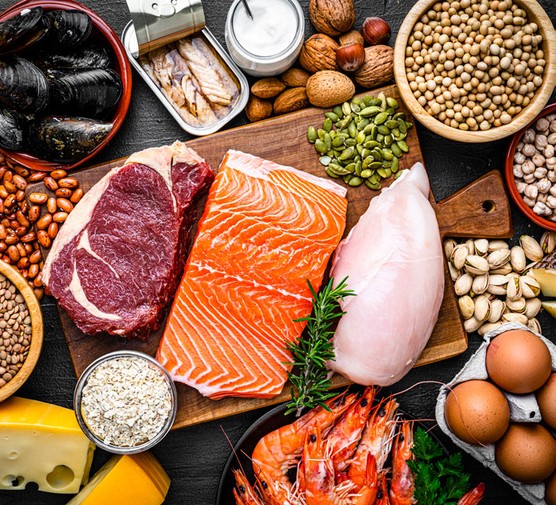A professional nutritionist said, “eggs, beans, yogurt, or rich protein sources such as salmon, mackerel, and tuna help control appetite throughout the day while supporting a faster metabolism, reducing inflammation, and improving cognitive function,”
Frequent cravings, exhaustion, mental lapses, weak muscles may be signs of not taking enough protein as many people don’t consume enough protein or bother to include it in the first meal of the day causing too many improper body functions such as irregular menstrual cycle in women pointing to the fact that protein is important for even the hormones.
Experts say, missing periods, swelling in the hands and feet, getting sick frequently, feeling depressed, or having wounds that are slow to heal may all be associated with not taking enough protein and beyond those ones are other symptoms as listed below.
Fatigue
“In extreme cases, you can be tired and lack energy,” says a nutritionist. “After all, consuming balanced meals—including protein—is key to keeping the immune system functioning and for regulating your hormones.”
It is explained that, “undernutrition may result in weight loss and nutritional deficiencies leading to fatigue by means of lack of energy, a key concept of fatigue. When protein and energy intakes fail to meet individuals need, body stores are catabolized to provide energy, leading to the depletion of body fat and muscle with consequent symptoms such as fatigue or tiredness.” Further study by nutritionist explained that, “higher protein intake is independently associated with a lower risk of moderate and severe fatigue.”
Loss of muscle mass
Specialists said, “Protein is important for joints, muscle recovery, and muscle building. It also helps you maintain muscle mass in the long term. It’s especially important if you intense exercise sessions—there’s no use doing anabolic or strength training and then not feeding your muscles.” with enough protein.
Eating ample protein can help you achieve better results from your workouts. “You can be doing hours of exercise and not notice a change in your body or even gain muscle mass, if you’re not eating enough protein.”
Brittle nails and hair loss
Brittle nails and hair loss could be a sign you’re not getting enough protein. “Protein contains collagen and keratin, which are indispensable for healthy nails, hair, and skin. If you don’t consume enough protein, your skin can become very dry, your nails will start to break, or you could even experience hair loss,” says the nutritionist. If you notice any of these symptoms, it will be wise to visit a doctor to have your protein levels checked.
Cravings between meals
“If you are only consuming carbohydrates, you may finish eating and feel hungry half an hour later—you never feel satisfied,” explained the specialist. This is because protein increases nutritional satisfaction, while simple carbohydrates can lead to blood sugar spikes that cause cravings later. “Rather than reaching for white bread and sugar-rich cereals that break down quickly and offer little nutritional value, start the day with a protein-rich breakfast. A high protein diet can reduce ghrelin, the hormone that signals to your brain when it’s time to eat, and increase peptide YY, which signals satiety,” a specialist explained.
However, “you should also supplement with vitamins, minerals, magnesium and omega and be sure to consume protein from whole grains and legumes.” Moreover, specialist recommends working with a nutritionist who can advise on the proper macronutrients that can help you keep healthy while taking sufficient protein to keep you healthy.




